There's a lot of advice on weaning all over the internet, but most of them deal with vegetarian food or food from plant sources. If you're a family who eats eggs, fish and meat, you've probably wondered, 'When can I give my baby meat and fish?' You're likely to have heard about the benefits of iron from animal sources, but are worried if your child's body is ready to handle it. But now that we're here, we'll clear all your doubts and put your mind at ease!
Why Should I give my Baby Non Vegetarian Food?
In India, when we speak of non vegetarian food, we usually refer to eggs, seafood, poultry and all kinds of meat. We've already covered the basics of introducing eggs in your baby's diet here, so today we'll focus on starting your baby on other non vegetarian foods.
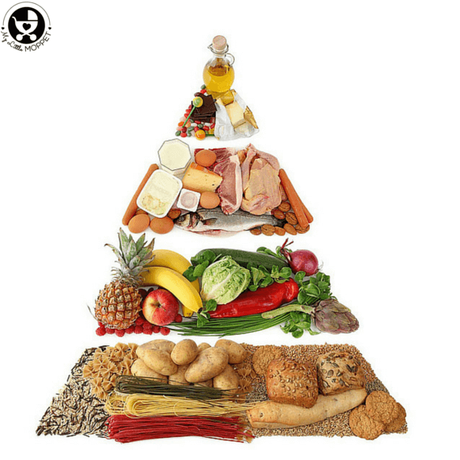
You're probably thinking of starting your baby on non vegetarian food since that's what the rest of the family eats, but there are further health benefits of giving non vegetarian food to babies:
1. Chicken, meat and fish are excellent sources of zinc and protein, which is necessary for good growth
2. Red meat contains high sources of iron called heme-iron, which is more readily absorbed by the human body
3. Non vegetarian food is filling and increases satiety, reducing the chances of overfeeding and subsequent obesity
Introducing non vegetarian food is considered more important for exclusively breast fed babies, since their iron sources quickly begin to deplete when they start solids.
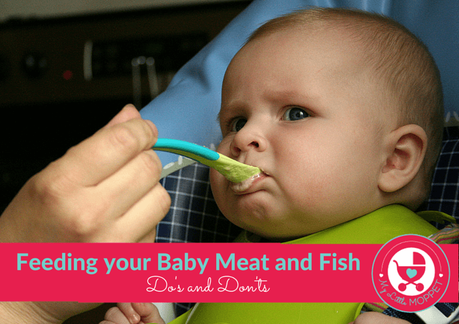
Now we come to the million dollar question - When can I start non vegetarian food for my baby? Many experts think that a baby's digestive system is ready for non-veg foods when he is ready for solids, suggesting that it can be one of baby's first foods. However, the general consensus seems to be that it's best to wean baby on plant foods first, and then slowly start introducing non vegetarian by around 7 months.
It is advised to start with fish (not shellfish) and poultry since they are milder in taste and then move on to red meat, preferably lamb. Never introduce everything at once, especially if anyone in your family has a tendency towards allergies. If your baby gags and turns away, stop and retry after some time. Due to this reason, it is usually recommended to start with small quantities of non-veg cooked with your baby's usual vegetables and grains, to get him accustomed to the taste.
How to Introduce your Baby to Non Vegetarian Food
Some Moms find that their babies resist the taste of non vegetarian food initially, so for them, thinned out soups are a good place to start. Include potatoes or carrots to make it more familiar to baby.
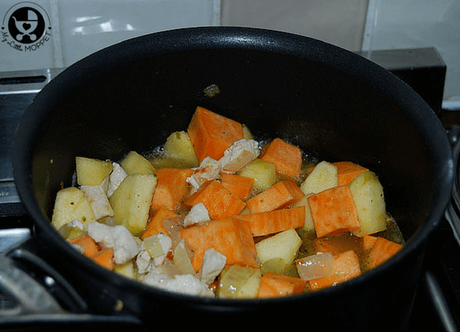
Once your baby is used to the taste of non vegetarian food through soups and broths, you can move to purees. Pureed meat is easier to eat for younger babies, is not a choking hazard and is easier to digest. Cook thoroughly, cool and grind to a fine paste. At this stage, you can add some of the stock or some boiled potato puree.

You can either cook the meat and vegetables separately followed by pureeing them together, or you can cook them together, which has better results. Root vegetables work best, but even fruit like apples can be used.
Liver is a very nutritious food for babies since it is rich in Vitamin A, an important vitamin for good eyesight, immunity and development of the body's organs. However stick to chicken liver alone and feed only small amounts - a couple of teaspoons once a week.
Ensure that meat is only a part of your baby's meal, and that there are enough carbs and veggies. Begin with giving meat only twice a week, and then at one meal a day, and then if you like, move on to lunch and dinner when they're toddlers. Remember that plant foods like lentils are also protein, so you can avoid meat if you're serving plant proteins at a meal.
As your baby grows and his teeth develop, change the consistency of his meat puree and make it chunkier. If your baby is into finger food, cut up small pieces (not small enough to cause choking) of chicken or meat, cook through and let baby chew on them.
General Tips about Preparing Non Vegetarian Food for your Baby
1. Do not cook or defrost meat meant for the baby in the microwave. Cook on the stove top to ensure complete cooking and never refreeze defrosted meat. Wash thoroughly till the water runs clear to remove all traces of impurities.
2. Tenderizing meat makes it softer and much easier to digest, so it's best to do it when starting baby on meat for the first time. You can tenderize meat either by pounding with a meat pounder or going the kabab way - marinating meat with milk or yogurt.
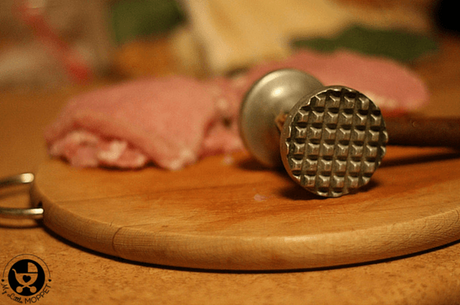
3. Raw meat is dangerous, so ensure that all meats are cooked completely, with no pink parts anywhere. That said, don't overcook the meat, since it can become tough and difficult to eat. Avoid meats cooked on coal or smoked. The best way to feed baby meat is by cooking in a gravy, like a curry or by steaming (works best for poultry)
4. Completely avoid all kinds of processed meats like sausages, ham, salami etc. These are very high in sodium and contain carcinogens like nitrates. Smooth foods like sausages also pose a choking hazard. As far as possible, try to get poultry, meat and eggs from animals that grow freely on farms, that are not injected with hormones or antibiotics.
5. Feed baby only home cooked non vegetarian food. Food from restaurants or other sources may have been improperly stored and may not have been cleaned or cooked well, and can cause food poisoning.
Precautions
1. You need to remember that while the baby's body is ready for non vegetarian food by 6 months, his kidneys are still immature and cannot handle very large amounts of protein. So ensure that baby has non-veg foods only in the prescribed quantity and only at the mealtimes you've planned for him.
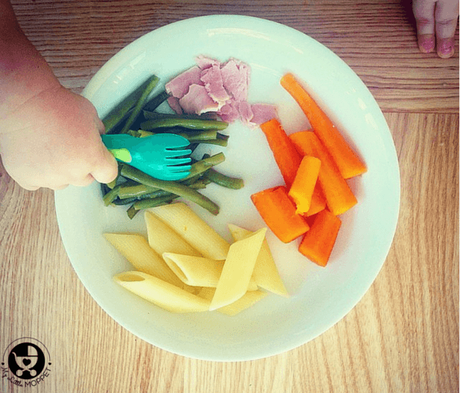
2. Give very small amounts of liver to your baby, as too much can cause Vitamin A toxicity which can block the action of Vitamin D and affects the bones.
3. Too much meat can result in constipation, as the baby's diet lacks enough fibre from fruit and vegetables. Increase the quantity of non vegetarian food very gradually.
4. Some babies may have allergic reactions to meat, so follow general food introduction guidelines for non-veg foods as well.
So you see, while some babies may not take to non-veg foods right away, some babies seem to ask, 'where were you all this time?' Whatever the case may be, just follow your baby's cues and stick to controlled portions, and you'll have a baby who enjoys eating his balanced meals!!
Lots of Love,



COMMENTS ( 2 )
posted on 21 January at 12:27
Nice replies in return of this issue with solid arguments and explaining all about that.
posted on 01 December at 05:41
I think the admin of this website is truly working hard in favor of his site, as here every data is quality based data.